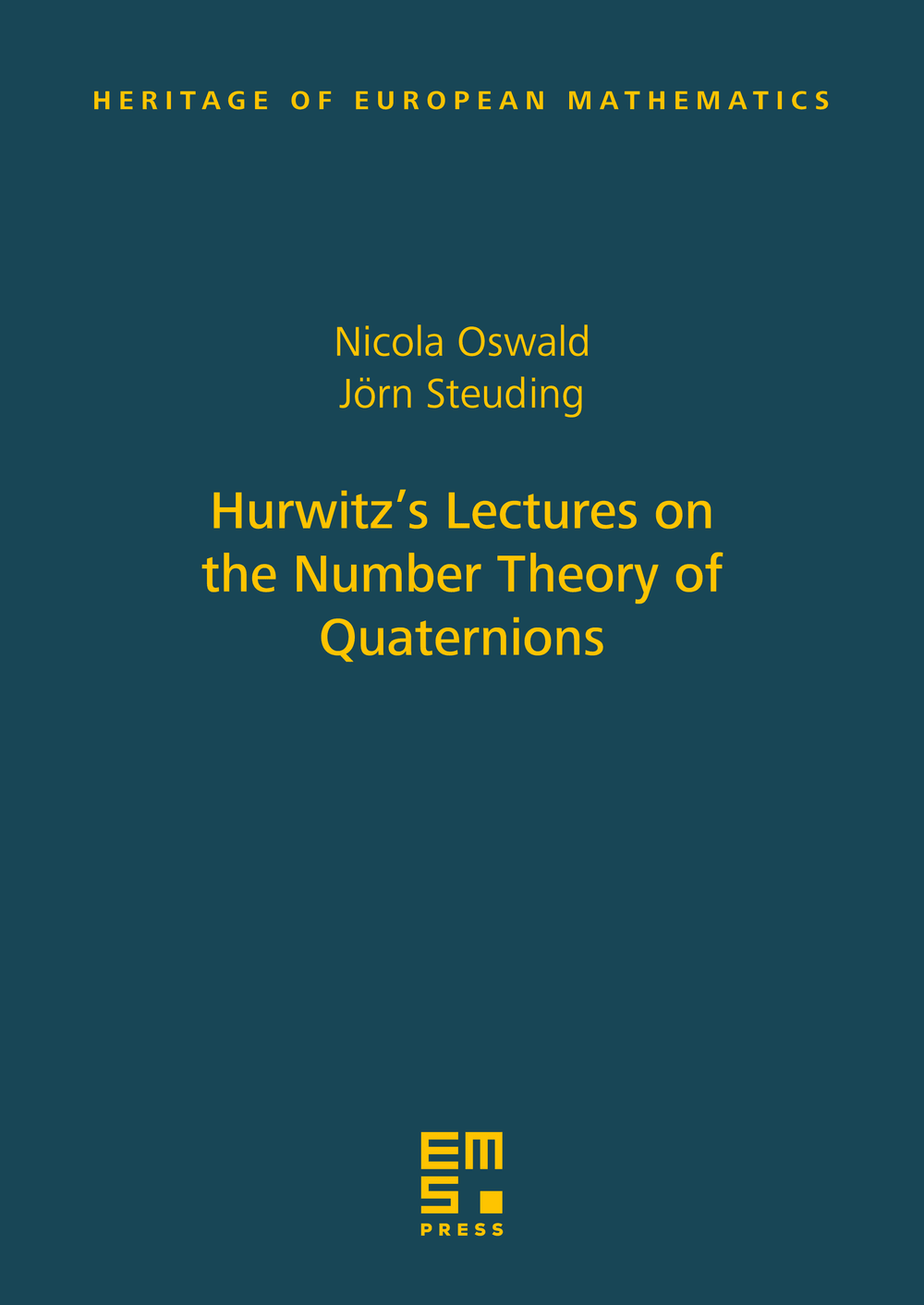Hurwitz’s Lectures on the Number Theory of Quaternions
Nicola Oswald
Bergische Universität Wuppertal, GermanyJörn Steuding
Julius-Maximilians Universität Würzburg, Germany

A subscription is required to access this book.
Quaternions are non-commutative generalizations of the complex numbers, invented by William Rowan Hamilton in 1843. Their number-theoretical aspects were first investigated by Rudolf Lipschitz in the 1880s, and, in a streamlined form, by Adolf Hurwitz in 1896.
This book contains an English translation of his 1919 textbook on this topic as well as his famous 1-2-3-4 theorem on composition algebras. In addition, the reader can find commentaries that shed historical light on the development of this number theory of quaternions, for example, the classical preparatory works (of Fermat, Euler, Lagrange and Gauss to name but a few), the different notions of quaternion integers in the works of Lipschitz and Hurwitz, analogies to the theory of algebraic numbers, and the further development (including Dickson’s work in particular).
The authors have implemented parts of the book in stand-alone courses, and they further believe that the present book can also complement well a course on algebraic number theory (with respect to a non-commutative extension of the rational numbers).